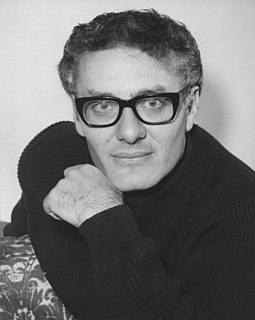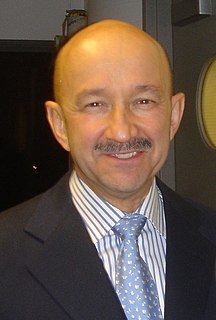A Quote by Richard Dawkins
You could give Aristotle a tutorial. And you could thrill him to the core of his being. Aristotle was an encyclopedic polymath, an all time intellect. Yet not only can you know more than him about the world, you also can have a deeper understanding of how everything works. Such is the privilege of living after Newton, Darwin, Einstein, Planck, Watson, Crick and their colleagues.
Related Quotes
Through Plato, Aristotle came to believe in God; but Plato never attempted to prove His reality. Aristotle had to do so. Plato contemplated Him; Aristotle produced arguments to demonstrate Him. Plato never defined Him; but Aristotle thought God through logically, and concluded with entire satisfaction to himself that He was the Unmoved Mover.
We relate to Leonardo da Vinci because his genius was just being passionately curious about everything. He wanted to know everything he could know about our universe, including how we fit into it. We can't all have a superhuman intellect like Albert Einstein's, but we can be super-curious. And we can also quit smashing curiosity out of the hands our children.
Worship isn't destructive, Martin. I know that. I don't. I only know it's the core of his life. What else has he got? He can hardly read. He knows no physics or engineering to make to world real for him. No paintings to show him how others have enjoyed it. No music except television jingles. No history except tales from a desperate mother. No friends. Not one kid to give him a joke, or make him know himself more moderately. He's a modern citizen for whom society doesn't exist.
If he looked into her face, he would see those haunted, loving eyes. The hauntedness would irritate him - the love would move him to fury. How dare she love him? Hadn't she any sense at all? What was he supposed to do about that? Return it? How? What could his calloused hands produce to make her smile? What of his knowledge of the world and of life could be useful to her? What could his heavy arms and befuddled brain accomplish that would earn him his own respect, that would in turn allow him to accept her love?
He looked at a world of incredible loveliness. Old distaff Celt's blood in some back chamber of his brain moved him to discourse with the birches, with the oaks. A cool green fire kept breaking in the woods and he could hear the footsteps of the dead. Everything had fallen from him. He scarce could tell where his being ended or the world began nor did he care. He lay on his back in the gravel, the earth's core sucking his bones, a moment's giddy vertigo with this illusion of falling outward through blue and windy space, over the offside of the planet, hurtling through the high thin cirrus.
Have you ever realized that you can give things to God that are of value to Him? Or are you just sitting around daydreaming about the greatness of His redemption, while neglecting all the things you could be doing for Him? I'm not referring to works which could be regarded as divine and miraculous, but ordinary, simple human things - things which would be evidence to God that you are totally surrendered to Him.
Science is being daily more and more personified and anthromorphized into a god. By and by they will say that science took our nature upon him, and sent down his only begotten son, Charles Darwin, or Huxley, into the world so that those who believe in him, &c.; and they will burn people for saying that science, after all, is only an expression for our ignorance of our own ignorance.



































